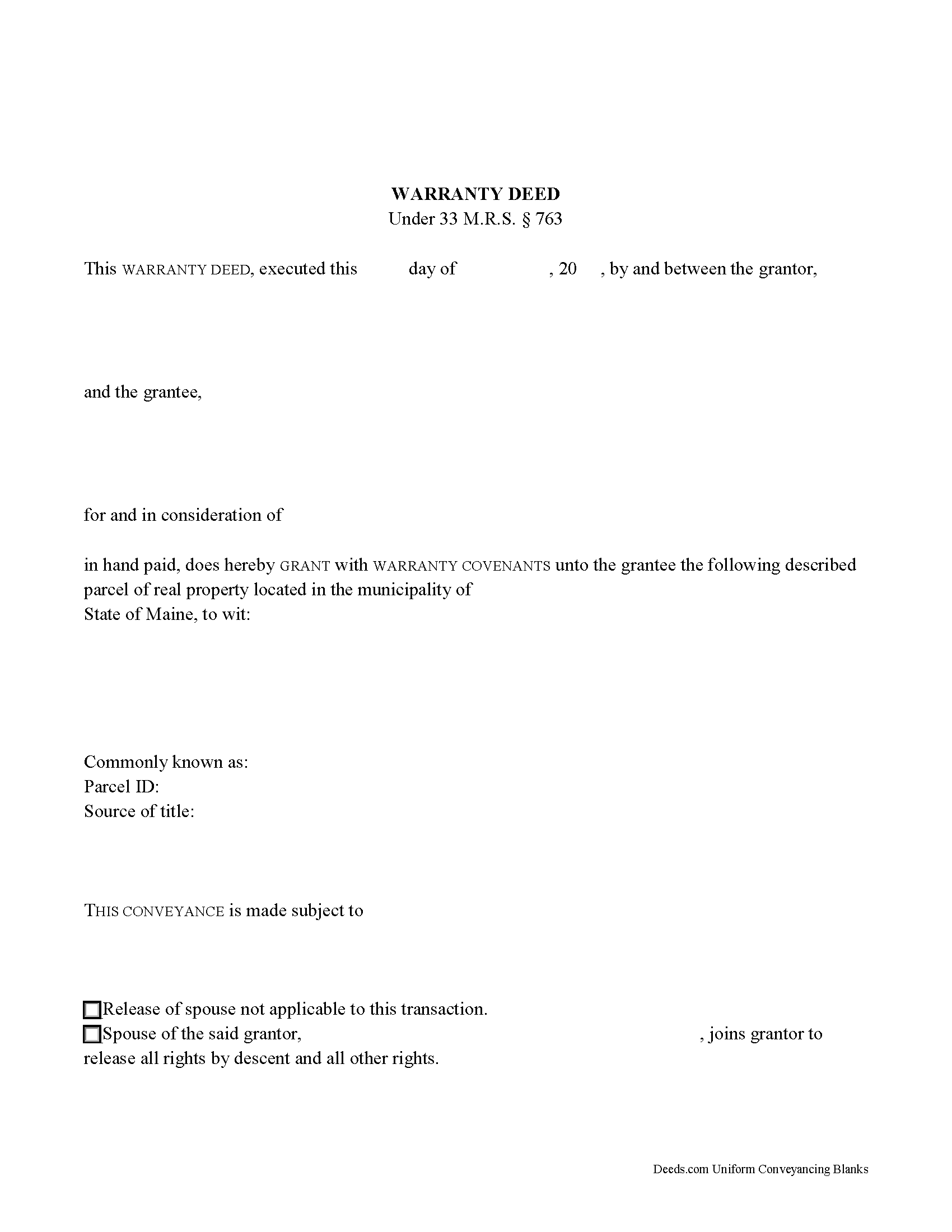Download Maine Warranty Deed Legal Forms

Maine Warranty Deed Overview

Real property transfers are governed by Title 33 of the Maine Revised Statutes.
A warranty deed under 33 M.R.S. 763 transfers real property from the seller (grantor) to the buyer (grantee). Using the statutory phrase "with warranty covenants" in the deed implies that the grantor warrants that they are the true owner of the property and have the legal right to convey it, and that the property is free of liens or encumbrances unless otherwise listed in the deed.
A lawful warranty deed identifies the names and addresses of each grantor and grantee, For Maine residential property, the primary methods for holding title are tenancy in common and joint tenancy. An estate conveyed to two or more persons is considered a tenancy in common, unless a joint tenancy is clearly expressed (33 M.R.S. 159).
Include the source of title, and a complete legal description of the property; without these two things, the document does not constitute notice to third parties (33 M.R.S. 201-A(2)). The deed must be signed by each grantor, if there are more than one. Additional witnesses are not required to sign the deed, but it must be notarized and acknowledged by the grantor in the presence of an official listed in 33 M.R.S. 203. If applicable, the grantor's spouse must also sign the deed to release his or her interest in the property (33 M.R.S. 772-A-1).
A Transfer Tax Form (or Declaration of Value) must be filed at the County Register of Deeds' office at the same time as the recording of the deed (36 M.R.S 4641-4641N). If the sale is exempt from the transfer tax, state the exemption clearly on the form. The transfer tax is collected based on the consideration paid for each conveyance of property. Find the list of exemptions from this tax at 36 M.R.S. 4641-C.
Record the deed at the Register of Deeds' office in which the county is located. If the property is located in more than one county, record the deed in both counties (33 M.R.S. 201). All recorded real estate deeds, leases, or other written instruments pertaining to real estate in Maine will take precedence over unrecorded documents (33 M.R.S. 201). The instrument will not be effectual unless the deed is acknowledged and recorded in the registry of deeds.
In addition to the content requirements set forth by statute, the form must meet all state and local standards for recorded documents. These may vary from county to county, so contact the local recording office with questions.
This article is provided for informational purposes only and is not a substitute for legal advice. Contact a lawyer with questions about warranty deeds or transfers of real property in Maine.
(Maine WD Package includes form, guidelines, and completed example)